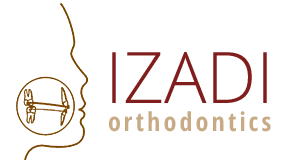Maintaining impeccable oral health becomes crucial during orthodontic treatment. Braces often create additional spaces where food particles and plaque can accumulate, leading to potential oral health issues. Ignoring proper hygiene practices while wearing braces increases the risk of plaque buildup and gum inflammation. These issues can complicate your orthodontic treatment and lead to long-term dental problems.

Braces Cleaning How-To Guide
Ensuring a thorough cleaning routine forms the foundation of maintaining oral health while wearing braces. Adhering to specific brushing and flossing techniques can significantly reduce the risk of dental issues.
Daily Oral Care Routine for Brace Wearers
Brushing with braces requires a slightly different approach to reach all the nooks and crannies. Start by using a soft-bristled toothbrush and angle it at 45 degrees towards the gumline. Gently brush along the gumline and the brackets. Ensure you clean every surface of each tooth, including the front, back, and chewing surfaces. Spend at least two minutes brushing to ensure a thorough clean. Follow up with brushing your tongue to remove bacteria and freshen your breath. Flossing with braces can seem challenging, but it remains essential. Using orthodontic floss or a floss threader can help you navigate around the braces. Thread the floss carefully between the teeth and under the archwire. Gently move the floss up and down against the tooth surfaces and under the gumline. Repeat the process for each tooth to ensure thorough cleaning.
Recommended Oral Hygiene Products for Individuals with Braces
Certain oral hygiene products can make cleaning with braces easier. A quality toothbrush designed for braces, like one with V-shaped bristles, ensures effective cleaning. Interdental brushes serve as excellent tools for cleaning around brackets and wires. These small brushes can reach areas that a regular toothbrush might miss. Orthodontic floss, which is stiffer on one end, simplifies the threading process, ensuring thorough cleaning between teeth. Incorporating these tools into your routine can significantly enhance your oral hygiene efforts during orthodontic treatment.
Tips for Managing Common Oral Health Issues with Braces
Brace wearers often encounter common issues, such as food getting stuck in the brackets and discomfort. Addressing these issues promptly can help maintain optimal oral health.
Dealing with Food Stuck in Braces
Food particles can easily get trapped in braces, leading to discomfort and potential plaque buildup. If you find food stuck in your braces, use an interdental brush to gently dislodge it. Swishing water around your mouth can also help remove any remaining particles. Avoid using sharp objects to remove food, as they can damage the braces or injure your gums.
Handling Orthodontic Discomfort
Orthodontic treatment can sometimes cause discomfort or irritation, especially after adjustments. Applying orthodontic wax to the areas where braces rub against your cheeks or lips can provide relief. Simply roll a small piece of wax into a ball and press it onto the bracket or wire, causing discomfort. Over-the-counter pain relief can also help manage any discomfort. Ibuprofen or acetaminophen can reduce inflammation and alleviate pain. However, always consult Dr. Mohammad Izadi before taking any medication.
Importance of Regular Dental Check-Ups During Orthodontic Treatment
Regular dental check-ups play a critical role in monitoring your oral health progress during orthodontic treatment. These visits allow Dr. Mohammad Izadi to assess your oral hygiene practices and address any issues that may arise.
Professional Cleaning with Braces
Professional cleanings become even more vital when you have braces. Dental professionals can remove plaque and tartar buildup that regular brushing and flossing might miss. They can also examine your braces to ensure they are functioning correctly and not causing any harm to your teeth or gums. Regular check-ups provide an opportunity to address concerns, ensuring your orthodontic treatment progresses smoothly.
